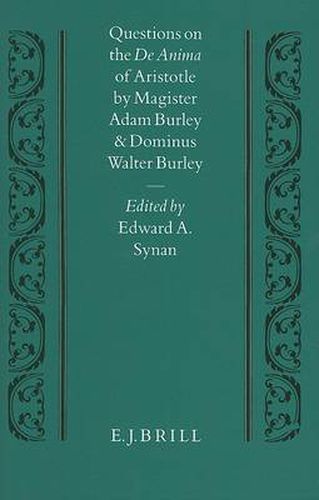Readings Newsletter
Become a Readings Member to make your shopping experience even easier.
Sign in or sign up for free!
You’re not far away from qualifying for FREE standard shipping within Australia
You’ve qualified for FREE standard shipping within Australia
The cart is loading…






This text of Oxford Questions on Aristotle’s De Anima, assembled before 1306, conveys a number of philosophical positions for which modern scholars often depend upon theologians. The single manuscript in which this series has been found is a collection of texts useful for students in Arts. A number of the authors represented, including Adam Burley, are known solely through this collection; others, including Walter Burley and Richard of Campsall, would make their reputations later as theologians. Adam, Master in Arts, and Walter, a Bachelor, here dealt with strongly controverted issues from a rigorously philosophical perspective; the ‘unity of intellect’ and human freedom of choice are debated without reference to Church or Bible. Albert, Henry of Ghent, and Giles of Rome are the sole scholastic masters whose arguments are invoked.
$9.00 standard shipping within Australia
FREE standard shipping within Australia for orders over $100.00
Express & International shipping calculated at checkout
This text of Oxford Questions on Aristotle’s De Anima, assembled before 1306, conveys a number of philosophical positions for which modern scholars often depend upon theologians. The single manuscript in which this series has been found is a collection of texts useful for students in Arts. A number of the authors represented, including Adam Burley, are known solely through this collection; others, including Walter Burley and Richard of Campsall, would make their reputations later as theologians. Adam, Master in Arts, and Walter, a Bachelor, here dealt with strongly controverted issues from a rigorously philosophical perspective; the ‘unity of intellect’ and human freedom of choice are debated without reference to Church or Bible. Albert, Henry of Ghent, and Giles of Rome are the sole scholastic masters whose arguments are invoked.